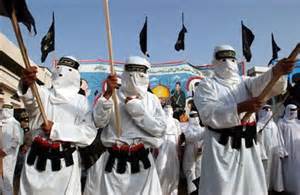Nothing has changed in Iran, except Rouhani is now wealthier given the suspension by the United States of key sanctions. Iran is as strong today globally as it ever was. Europe is considering stronger sanctions and Iran is working diligently to get more sanctions lifted to buy at least 400 aircraft.
Just keep in mind that the Obama White House has been negotiating with Iran and using several mediators, but even more disturbing is what is below. We are earnestly working with a state sponsor of terror.
Designated as a State Sponsor of Terrorism in 1984, Iran continued its terrorist-related activity, including support for Palestinian terrorist groups in Gaza, and for Hizballah. It has also increased its presence in Africa and attempted to smuggle arms to Houthi separatists in Yemen and Shia oppositionists in Bahrain. Iran used the Islamic Revolutionary Guard Corps-Qods Force (IRGC-QF) and its regional proxy groups to implement foreign policy goals, provide cover for intelligence operations, and create instability in the Middle East. The IRGC-QF is the regime’s primary mechanism for cultivating and supporting terrorists abroad.
Iran views Syria as a crucial causeway in its weapons supply route to Hizballah, its primary beneficiary. In 2013, Iran continued to provide arms, financing, training, and the facilitation of Iraqi Shia fighters to the Asad regime’s brutal crackdown, a crackdown that has resulted in the death of more than 100,000 civilians in Syria. Iran has publicly admitted sending members of the IRGC to Syria in an advisory role. There are reports indicating some of these troops are IRGC-QF members and that they have taken part in direct combat operations. In February, senior IRGC-QF commander Brigadier General Hassan Shateri was killed in or near Zabadani, Syria.
Beyond terrorism, there is still the matter of the Iranian nuclear program and Iran is not cooperating with the IAEA.
The Iranian regime’s Atomic Energy Organization spokesman, Behrouz Kamalvandi, stated that “legally, they have no right to visit Parchin since we are not implementing the Additional Protocol (to the NPT) and even if we did, access needs to be managed” (State-run Fars news agency, May 3).
Iran and China are now strategic defense partners which the State Department seems to dismiss. Then there is Sudan.
Sudan’s army spokesman Sawarmi Khaled Saad said the warships, one of them a navy supply ship, had arrived in Port Sudan, where civilians could tour the vessels during their port call.
Naval vessels from Iran have periodically stopped in Port Sudan for what Khartoum describes as normal port calls.
The coastal city lies about 250 kilometres (155 miles) across the Red Sea from Saudi Arabia, which has long been wary of Iran’s regional ambitions.
In March, a Western diplomat said strained political relations between Riyadh and Khartoum over Iran could have been a factor in a decision by Saudi banks to stop dealing with Sudan.
Khartoum also has close ties with Qatar, which is perceived as supporting the Egypt-based Muslim Brotherhood, towards which Saudi Arabia and other Gulf monarchies have long been hostile.
Relations between Sudan and Saudi Arabia are “zero”, a senior Sudanese opposition politician told AFP last month.
But Ibrahim Ghandour, an aide to President Omar al-Bashir, said in a March interview that there is “nothing peculiar” in Sudan’s relations with Iran, insisting they had not affected ties with other countries, including Saudi Arabia, which remains a leading investor.
On Monday Sudan’s foreign ministry described relations with the Gulf as “stable” and said ties with Saudi Arabia are based on “mutual respect,” in a report to parliament, the official SUNA news agency said.

